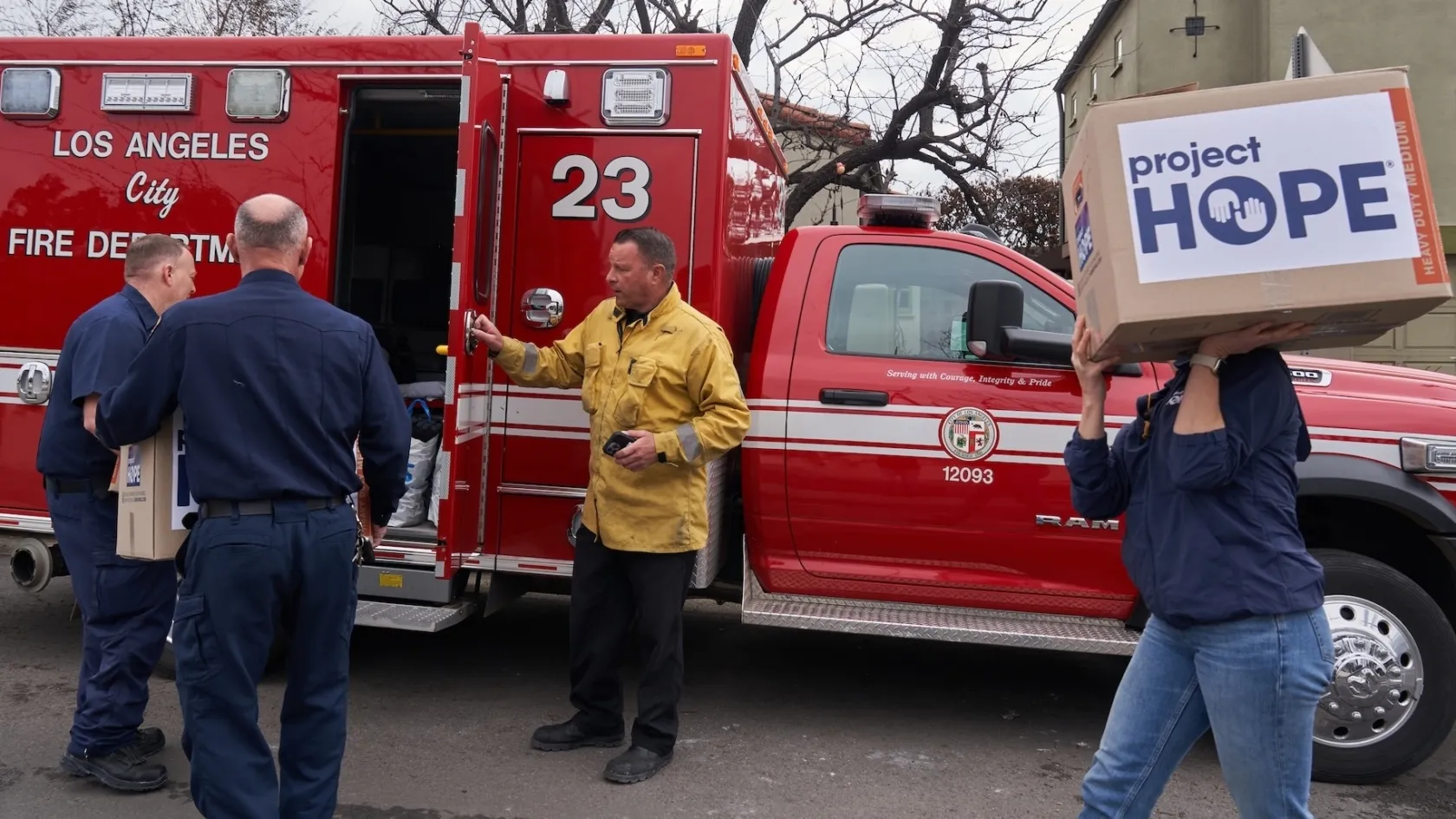How Does Climate Change Impact Human Health?
Climate change isn’t a far-off possibility — it’s an urgent public health crisis that will cost millions of people their lives this year. Get the facts and learn more about how you can help.
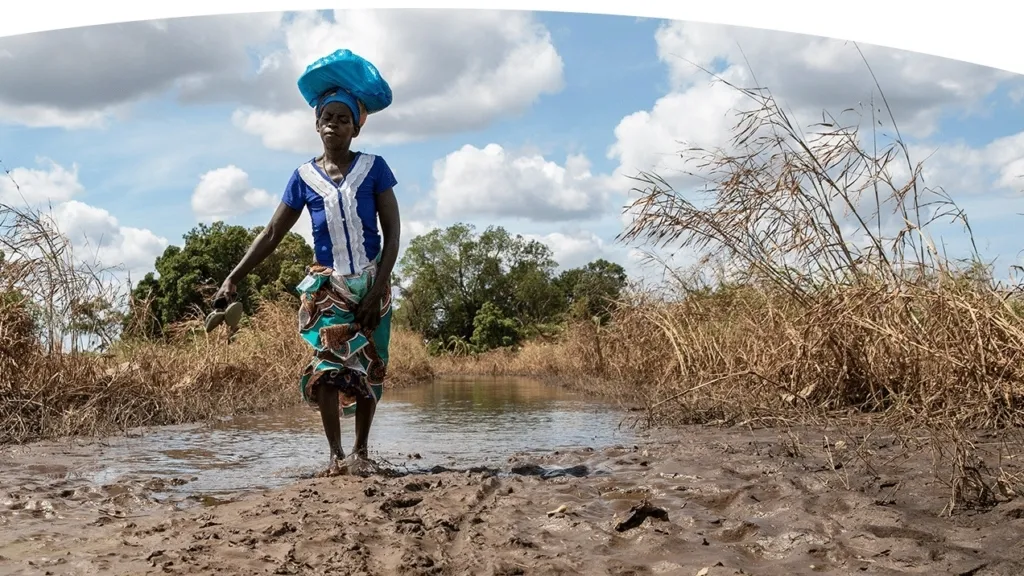
Five million people.
That’s the entire population of Ireland, or Chicago and Houston combined. It’s enough people to fill the Colosseum 50 times, or Madison Square Garden 240 times.
It’s also how many people die each year due to climate change.
Climate change is not a far-off hypothetical or an abstract theory. It’s an empty riverbed in rural Ethiopia, a raging wildfire in the Amazon, a storm churning in warm ocean waters. The United Nations has warned that there is a new climate change crisis happening every week. In some of the most vulnerable places on earth, right now, climate change is a matter of life and death — and it’s only going to get worse. The war in Ukraine, in addition to its profound trauma and humanitarian impacts, could further derail climate action.
In 2021, the Intergovernmental Panel on Climate Change released a major report detailing the coming impacts of climate change. No matter what changes we make, the world is locked into 30 years of worsening climate impacts. What happens after that is up to us.
Climate change is a massive global health and humanitarian crisis unfolding before our eyes. So, what kind of impact is it having on human health? What can be done about it? And what is Project HOPE doing to help? Read on to learn more about this crisis and how you can join us to take action.
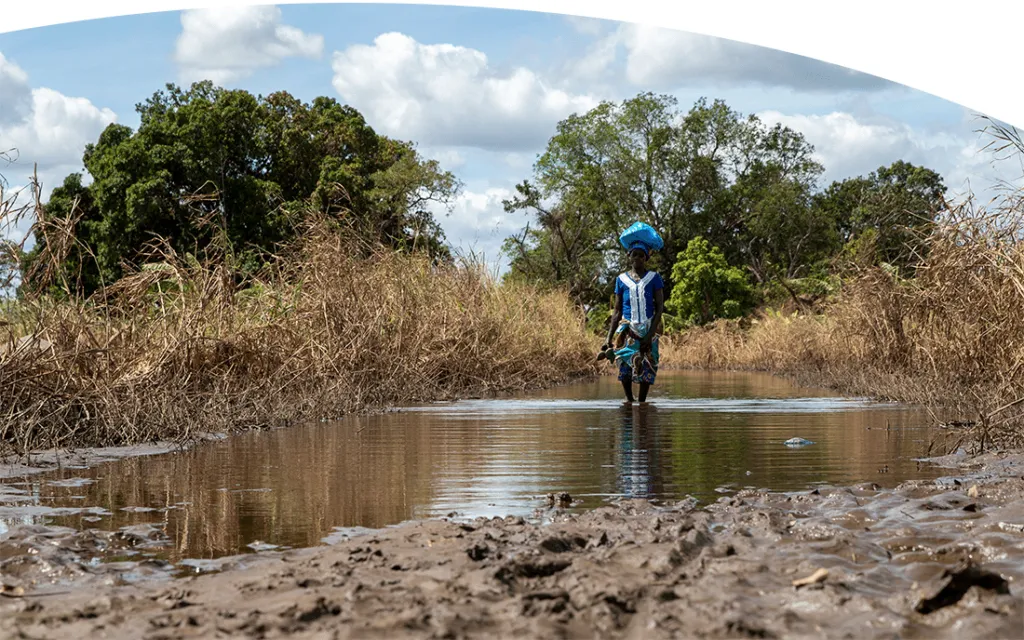
How does climate change affect human health?
From the air we breathe to the water we drink, the changing climate has serious effects on our health. We are already seeing the direct cost of a warming climate in our air pollution, food production, heat waves, and extreme weather. We can also see the effects more broadly, in widespread conflict and displacement, which often find their roots in competition over precious natural resources.
Climate change also has a serious impact on mental health. Disasters like flooding and droughts can elevate levels of anxiety, depression, and post-traumatic stress disorders. Researchers have also found connections between exposure to poor air quality and increased risk of anxiety, schizophrenia, and personality disorder. People with mental health conditions are more likely to be affected by severe weather conditions, and children are particularly vulnerable.
These are only a fraction of the consequences, and each of them has major tolls on our health: 7 million people die every year from air pollution, while heat waves in U.S. cities cause more deaths than every other disaster combined. Displacement can lead to major health issues, including infectious disease, malnutrition, and psychological and emotional distress.
According to the World Health Organization, climate change will cause approximately 250,000 additional deaths per year between 2030 and 2050 due to increases in heat stress, dengue, malaria, and malnutrition.
Most alarmingly, climate change disproportionately affects the world’s most vulnerable populations. More than 82 million people are displaced worldwide, the most in modern history. The majority are displaced by conflict and violence, in places like Ukraine, Syria, and the Democratic Republic of the Congo. But a growing number are forced from their homes by disaster: in 2018, more people were displaced by drought in Afghanistan than by conflict.
That’s why Health Affairs calls climate change “a bona fide public health crisis in the making.” Climate change is often thought of as a “threat multiplier” — a factor that makes already dangerous situations worse — but the evidence is all around us. It’s a threat to our health all its own.
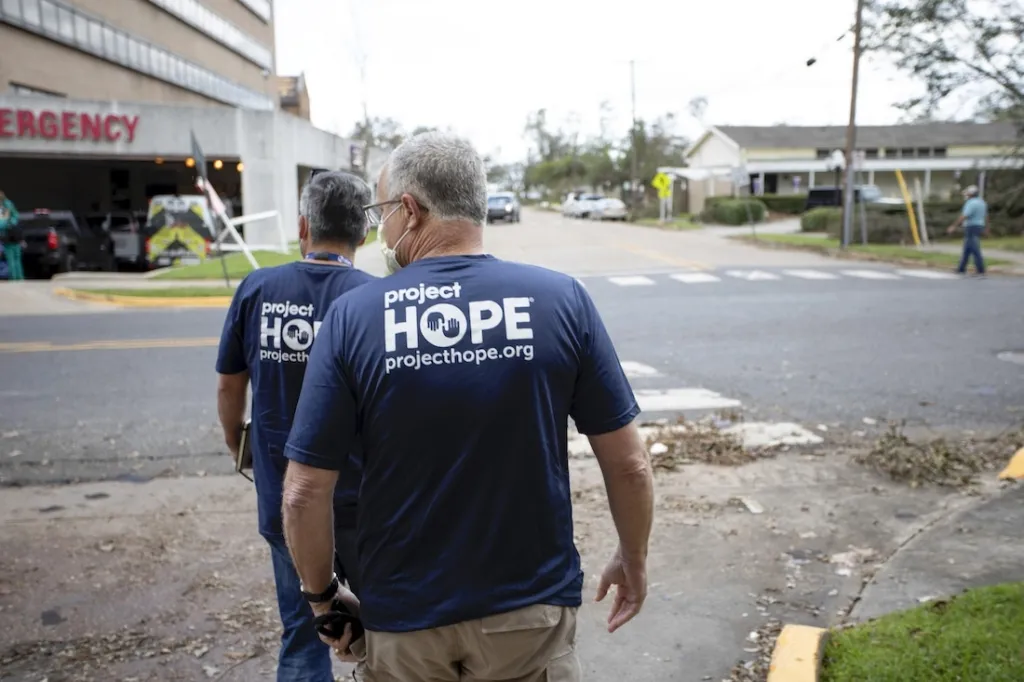
Is climate change going to get worse?
According to the U.S. Global Change Research Program, the adverse health effects of climate change are expected to worsen as the climate continues to warm. Heat waves, floods, droughts, and other extreme weather will all get worse. Additionally, climate change is expected to shift the geographic range of ticks that carry Lyme disease and mosquitoes that carry West Nile and Zika, exposing more people to vector-borne diseases. By 2050, annual national cases of West Nile are projected to more than double.
Warmer water temperatures will alter the growth of harmful algae and compromise our drinking water, while drought and extreme weather may adversely affect our food security. Droughts will also impact how we breathe — in 2015, drought in California led to an increase in allergic reactions, asthma, and other respiratory issues.
“Climate change contributes directly to increases in morbidity and mortality, displacement and conflict. Climate change isn’t a political issue: human lives are at stake, and we can’t afford to sit by and not do anything about it.”
– Rabih Torbay, Project HOPE President & CEO
A changing climate also threatens to exacerbate violent conflict. In 2017, a panel of 11 experts spent two days trying to determine whether the risk for armed conflict will increase as climate change worsens. Their consensus? If we do not reduce greenhouse gas emissions, the risk of climate-induced violence goes up fivefold and could prove “catastrophic” for poorer countries.
The 2021 IPCC report on climate change is clear: no matter what we do, the world is locked into at least 30 years of worsening climate impacts. The effects on our health will be serious — and for some of us, they could be disastrous.
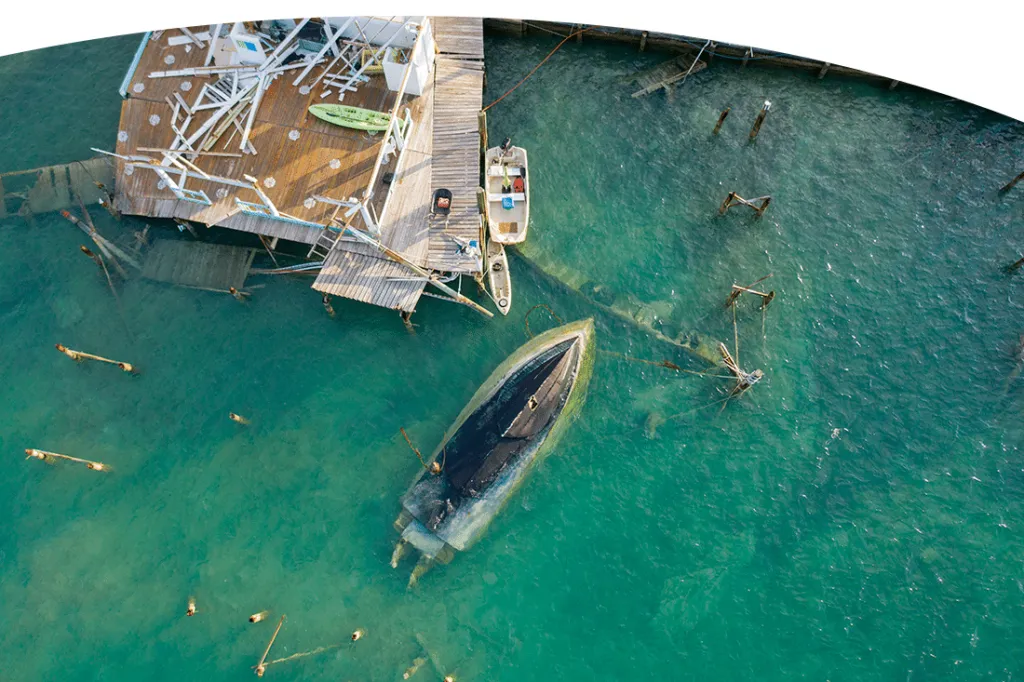
What can be done to stop climate change?
Serious action must be taken to protect the health and well-being of people worldwide, especially those who live in vulnerable populations. Just in the U.S., reducing greenhouse gases would have major health benefits in the near and long term and could save thousands of lives. (Ironically, the U.S. health care sector is a significant contributor to climate change, accounting for about 10% of total U.S. greenhouse gas emissions. It alone is the seventh-largest producer of carbon dioxide worldwide.)
Mitigating climate change would stop the spread of mosquito-borne diseases, save billions of dollars of health-related costs, and have positive long-term impacts on mental health — especially in communities that experience severe storms, like the Bahamas, Southern Africa, and the U.S. Gulf Coast.
Most importantly, though, it would save lives. We must invest now in health systems and health care workers around the world — especially in vulnerable communities on the front lines of climate change. In places like sub-Saharan Africa, Southeast Asia, and Latin America, we must commit to strengthening local health care systems, training and equipping health care workers, meeting the needs of displaced populations, and standing ready to respond to emergencies and disasters. We must give health care workers the tools they need to protect their own mental health and learn to see health holistically, implementing solutions that reach into the entire community to help people become more resilient to the changing climate.
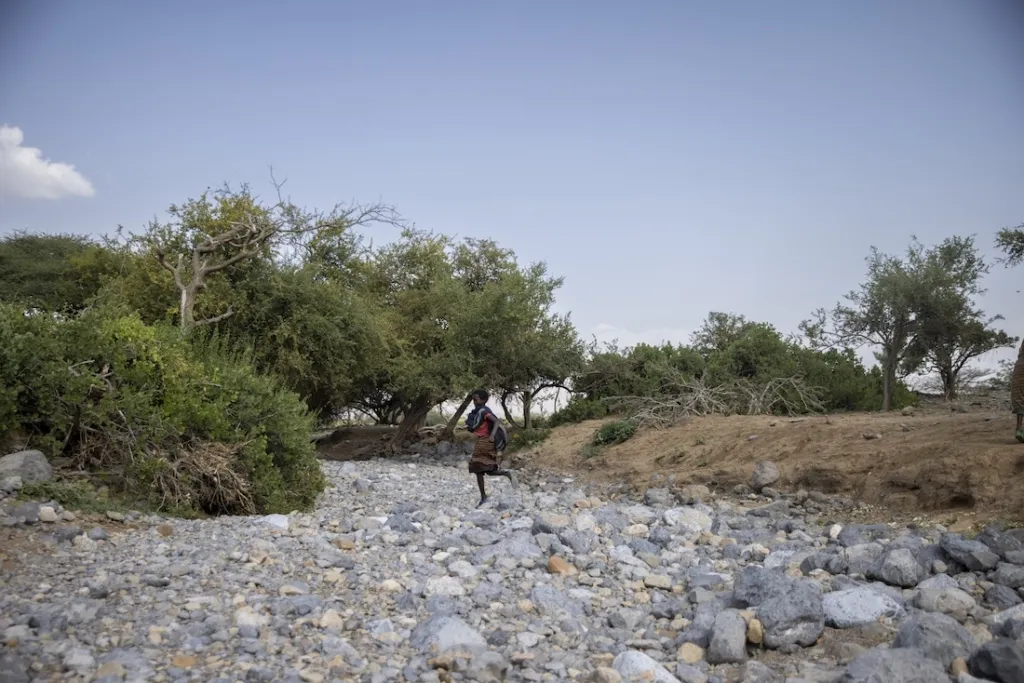
What is Project HOPE doing to combat climate change?
We are committed to strengthening health care systems and improving their capacity to withstand the impacts of climate change. Around the world, Project HOPE works within existing health systems to strengthen them from within and empower health workers with the knowledge and skills they need to reach their own communities. This work is especially vital in places that are vulnerable to a changing climate, like Indonesia, Ethiopia, Sierra Leone, and the Bahamas.
Project HOPE has also joined more than 80 other NGOs in signing InterAction’s NGO Climate Compact, which pledges concerted, unified, and urgent action to address climate change across our sector. The compact is a two-year commitment to begin developing joint solutions and taking individual organizational actions to address climate change. Learn more by viewing the full compact here.
Project HOPE has a long history of responding to the world’s most urgent natural disasters and humanitarian crises, from Hurricane Dorian in the Bahamas to the COVID-19 pandemic. Thanks to support from Medtronic, Project HOPE launched its first regional response hub in Indonesia, which includes a roster of regionally-based first responders who are ready to respond when the next tsunami, typhoon, or cyclone strikes.
Emergency response work often reveals larger opportunities to help strengthen local health systems, whether it’s helping prevent Malaria following a tsunami in Indonesia, or helping diabetes patients better manage their health in Puerto Rico. Project HOPE often stays long after a disaster is over, helping communities and health care systems as they begin the long road to recovery. That’s why, more than two years after Hurricane Dorian’s landfall in the Bahamas, we’re still there helping train community health workers and provide support as Abaco’s health system recovers.
Project HOPE is also implementing mental health and resiliency trainings for frontline health workers around the world. Originally piloted in the Dominican Republic and Indonesia, these trainings have now expanded across five continents and are reaching some of the world’s most vulnerable countries and communities.

